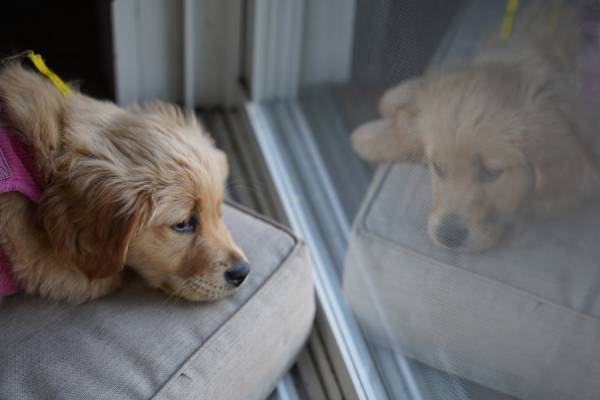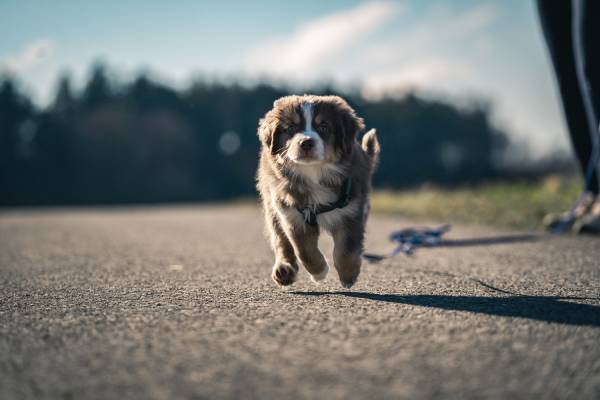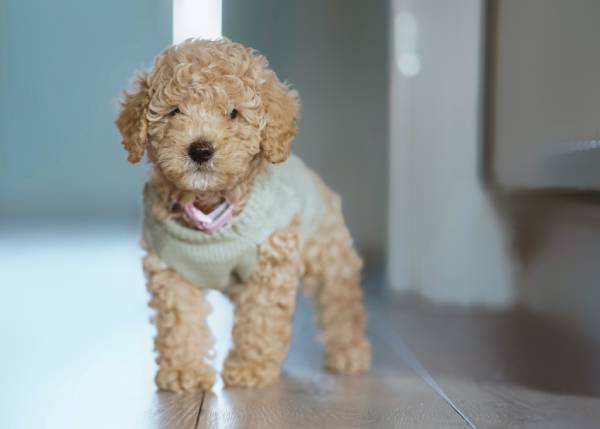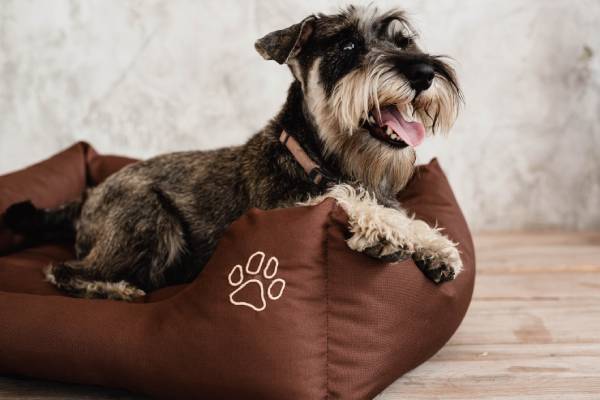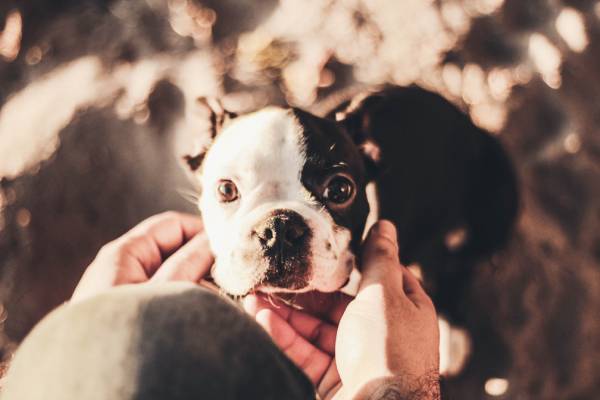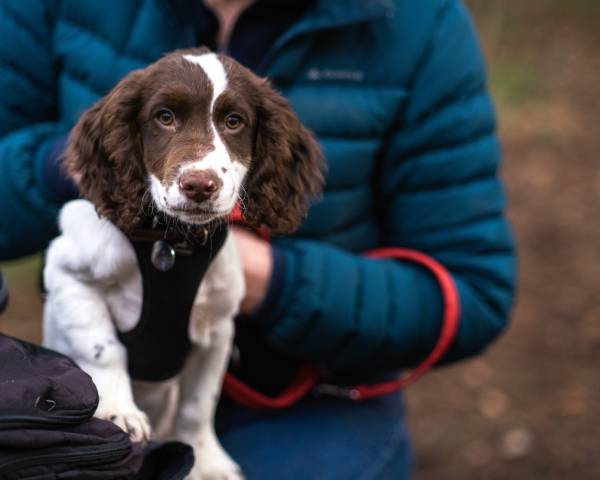
Socialising your puppy from the minute you bring them home is crucial for their development, but your dog may have missed out on some aspects of puppy socialisation or training for a variety of reasons. Many families chose to welcome a new puppy during the COVID-19 pandemic, however due to social distancing and lockdowns, the puppy may have missed out on some socialisation opportunities. Sadly, we are hearing more and more stories about shelters and rescue groups seeing an increase in pets being surrendered due to behavioural issues.
For many owners, navigating a puppy's socialisation before they have completed their puppy vaccinations is a confusing process, especially when you have been told not to take them out until all of their vaccines are complete. This may be another reason your puppy missed out on socialising with other dogs or people. The good news is that there is still hope! Regardless of the reason why your dog is unsocialised or under-socialised, there are still a number of things you can do to help them become a more comfortable and confident dog.
Common Issues in Dogs That Have Missed Socialisation
If your dog has missed their early socialisation, you are going to have your work cut out for you, but you will find that helping your dog to become more confident is an incredibly rewarding process. A dog that has missed proactive exposure training during the critical socialisation window (before 16-20 weeks of age) will often be fearful, aggressive, anxious or over-excited.
A lack of early socialisation may cause dogs to react negatively to other dogs, or to be anxious around unfamiliar people. Problems may arise at the vets or groomers if your dog isn’t used to being handled. Your dog may develop anxiety whenever they are outside their comfort zone.
Some dogs will still display these behavioral challenges even if they have been socialised during puppyhood. Socialisation during a dogs critical imprinting period is crucial, but a lack of socialisation or under-socialisation during puppyhood isn’t the only reason for behavioural problems in older dogs. A dog’s temperament and behaviour is largely influenced by their genetics, and just like in humans, dogs tend to become less social as they age. If your dog has suddenly become aggressive or cranky, it is best to rule out any medical issues with a vet first.
Our Vets Tips for Training an Unsocialised Dog
If you can, reach out to a certified professional such as an animal behaviourist, dog trainer or veterinary behaviourist. A certified professional can help you to work your way through undertaking remedial socialisation safely and effectively, and will provide you with some much-needed support.
Let your dog set the pace for how quickly you progress through their stages of socialization. If you overwhelm your dog with too much, too soon, you may accidentally increase their aggression and fear response.
One element of the COVID pandemic that you and your dog should keep practicing is social distancing. If your dog reacts when they get too close to a particular trigger, try exposing them from a distance where they can still see the trigger, but far enough away to prevent them from reacting.
Don't lose sight of the end goal. Your first goal should be to help your dog become less stressed and less anxious, and feel safer and more comfortable in their everyday life. Your second goal should be to make life with your dog as easy and stress-free as possible.
Your dog will respond best to reinforcement that is meaningful to them, but that doesn't distract them from their surroundings. Typically, they are high-value food treats, but some dogs prefer to play with toys, receive praise and be petted calmly.
Be Realistic with Your Expectations
Be realistic about your expectations for your dog. Even with extensive training, you might still have a dog that isn’t completely comfortable around and accepting of new people, animals, sounds and sights of the world, and that is ok!
It is unrealistic to expect all dogs to love everyone and everything. Instead, your aim should be to make your dog feel comfortable enough to handle certain experiences, such as vet visits, grooming appointments, and seeing other dogs while out on walks.
Rank Your Priorities
Make a list of things that cause your dog stress, anxiety, or overexcitement. Then rank these things in the order of what is most important when it comes to you and your dog’s safety and quality of life. This is where having a professional on your team comes in handy. You may prioritize being able to walk around the block with your dog without leash reactivity or fear, but there are ways to put that on the back burner while you help your dog get more comfortable being handled at the veterinarian. Your behavior consultant may recommend substituting walks with backyard play and other enrichment activities, so you only need to focus on handling exercises.
After your dog becomes more comfortable with the first item on your list, start on your second item. But remember not to overwhelm your dog with too many challenges or new experiences at once.
When Socialising Your Adult Dog, Start Small
Do you find that your dog is happy while in your backyard, but freezes and tenses up when you take them into the front yard? Start there! Work on building their confidence in the backyard first. Set up an easy foundation of cues, like name recognition and hand contact, to make it easy for you and your dog to connect.
Once you have established a solid foundation and increased trust between you and your dog, the next step is to slowly and systematically expand on those areas. Don't stress your dog out by trying to make them comfortable with everything at once. Taking baby steps and building upon each success will help you reach your goals.
Take it Slow
Slow and steady is the way to go when training an under- or unsocialised dog. Keep a close eye on your dog’s body language and learn how they express themselves when they’ve “had enough”. Some dogs will show they are uncomfortable by licking their lips or lifting their paws. Beyond just being uncomfortable, a dog may become completely overwhelmed and enter a “fight or flight” mode. A dog that is completely overwhelmed might show behaviours such as trying to run away, growling and/or barking, not taking treats when they normally would, freezing or shutting down or air snapping and/or lunging. A dog that is in this overwhelmed “fight or flight” state cannot be trained.
Counter Conditioning Training
In counter conditioning training, you want to retrain your dog’s response to certain stimuli from a negative response (e.g. barking, growling, running away) to a positive or neutral response. This is accomplished through first identifying what is a high value reward for your dog. Usually this is a special treat, but for some dogs, this might just be their absolute favourite toy of all time. When your dog approaches something that normally would elicit a negative response from them, reward them with this treat or toy when they respond in a positive or neutral manner.
For example, if your dog usually reacts to other dogs, try approaching from a distance. Before your dog starts to react, reward them sitting quietly and not barking with their favourite treat. As they become more comfortable, you can start to try and get closer to other dogs. You might find that every day you practice might not be better than the day before, but over time, you should notice an improvement in your dog.
You Don’t Have to Go It Alone
You don’t need to go on this journey of socializing your dog alone. Your veterinarian can provide tips and advice specific to your dog. They can also prescribe anti-anxiety medications or may suggest other therapies such as Zylkene to help your dog. Some vets can undertake further training to become a specialized veterinary behaviourist which is like a psychologist for animals. If you suspect your dog suffers from anxiety or phobias, they will need to see a veterinary behaviourist for a diagnosis or treatment. If your dog does not have a diagnosed mental illness, they may benefit from training with a dog trainer or behaviourist.
